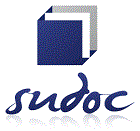Kierkegaard and the transformation of the subject into himself: between the vertigo of liberty and the absolute paradox of faith
DOI:
https://doi.org/10.23925/2177-952X.2018v12i21p68-86Keywords:
Kierkegaard, Socrates, Irony, Anguish, Subjectivity, FaithAbstract
Attributing to irony the possibility of exercise and development of subjective freedom, Kierkegaard emphasizes absolute negativity as characteristic of the said process in Socrates, converging to point out the absolute and irreducible value of the individual in a movement that implies the absolute beginning of the personal life between to create oneself (poetically) and let yourself be created (poetically). As opposed to the dissolution of human existence on the frontiers of pure intellectual conceptualization, Kierkegaard points out the unreliable tension between existence and transcendence in a movement that implies interiority and is in keeping with the need to become subjective, in view of the a perspective that holds that truth consists in the transformation of the subject into itself between the vertigo of freedom and the paradox of faith in a process that contains anguish and despair and converges for the transition from ethical to religious.Downloads
How to Cite
da Rosa, L. C. M. (2018). Kierkegaard and the transformation of the subject into himself: between the vertigo of liberty and the absolute paradox of faith. Revista Eletrônica Espaço Teológico., 12(21), 68–86. https://doi.org/10.23925/2177-952X.2018v12i21p68-86
Issue
Section
Articles




